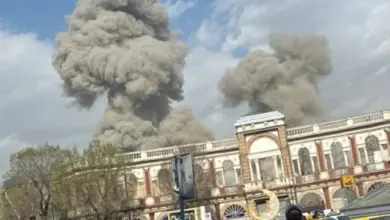Hamas’ last-minute refusal to sign a reconciliation agreement with rival Palestinian faction Fatah is a calculated move, according to Assistant Foreign Minister Abdel Rahman Salah, who described the decision as "short-sightedness and a bid to achieve political gains at the expense of a greater interest."
When asked if two proposals had been submitted to help with the reconciliation efforts, Salah said, "Egypt didn’t submit papers and if they have papers then they should come to Cairo and sign on to what has been previously agreed." The assistant foreign minister also said that the agreement proposed by Egypt will not solve all problems between the Palestinian factions, but rather puts in place a mechanism for solving problems.
Salah added that the Egyptian-brokered reconciliation document was rejected by Americans and Israelis, which he said proves that Egypt is not taking orders from the United States.
Salah also said that Israel has been calling for the return of European monitors at Gaza-Sinai crossings, a move he said would be in the interest of the Palestinians. Salah went on to say that if Hamas signed the agreement "cement would enter Gaza the next day" to help with rebuilding Gaza. Materials for reconstruction, along with many other goods, are prohibited from entering the Strip under the Israeli-led blockade.
Muslim Brotherhood MP Saad el-Husseiny said that the way the peace process is being handled reveals a strategic deficiency, adding that Israel doesn’t seem likely to change its stance.
"There can’t be negotiations if there isn’t a power to support them on the ground and if there aren’t several negotiation cards to use," said el-Husseiny. He also criticized the media attack on Hamas, which he said makes Hamas appear more of a threat to Egypt than Israel is.
El-Husseiny also said that Damascus-based Hamas leader Khaled Meshal urged Egypt to put Hamas on its agenda, during el-Husseiny’s last visit to see Meshal, after the war on Gaza last year.
According to el-Husseiny, Meshal wondered why the Palestinians had to draw on the support of Iran and not Egypt.
Translated from the Arabic Edition.




